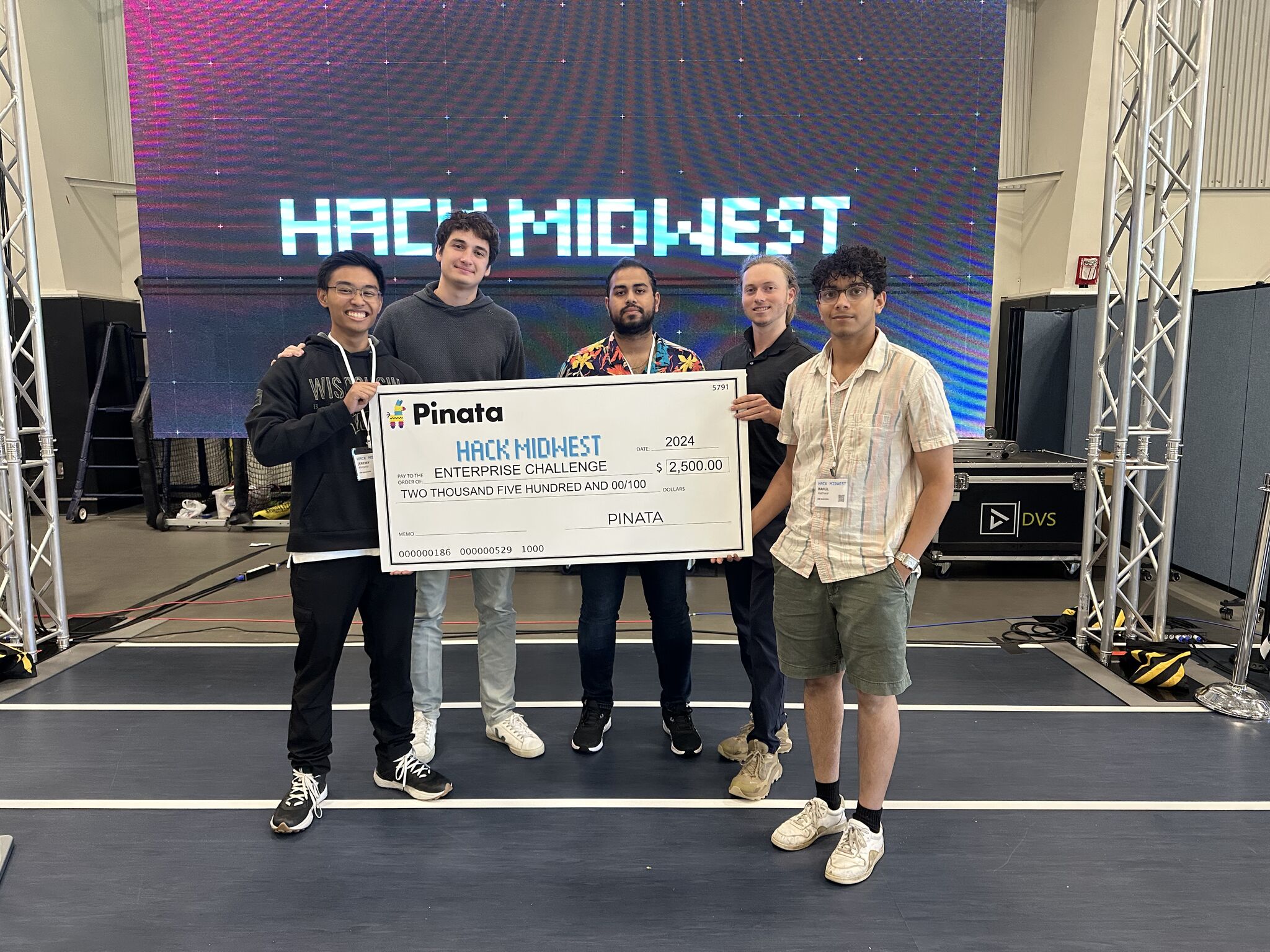Badger Vision
Hack Midwest Winner and Best Enterprise Scale Business Solution
Software Engineer
October 2024
Brennen Hill, Max Maeder, Jeremy Kintana, Rahul Hathwar, Utkarsh Sharma

Overview
We won and were noted for the Best Enterprise Scale Business Solution at Hack Midwest, the largest hackathon in the region! Our team was awarded $2,500 for our project.
Over 300 developers were selected to compete, including experts from leading organizations and universities. After 23 intense hours of coding with only a 1-hour break to sleep, we presented our solution to the judges and were victorious.
The Problem: Prosopagnosia
Prosopagnosia, or face blindness, affects around 2.5% of the population, more than 8 million people in the U.S. alone. This condition makes it difficult to recognize faces or interpret facial expressions. As of now, no therapies offer lasting improvements (PsyPost).
Our Solution: Badger Vision
Introducing Badger Vision, an open-source and easy-to-use tool designed to help individuals with face blindness by identifying both faces and emotions.
- Face Recognition: If a recognized face is detected, the tool announces the person’s name.
- Audio Cues: For unknown faces, a unique chime is played, with the exact same chime repeating upon subsequent encounters. This use of audio cues makes it easier to recognize faces.
- Emotion Detection: Our model also detects and announces emotions, making it easier to interpret social cues.
How it Works
Users authenticate the Badger Vision app via a QR code, which downloads pre-configured AI artifacts and settings stored on Pinata. The app streams video through our RTMP server to AI recognition servers, leveraging the Zoom Video SDK. The camera, which can be discreetly placed in a shirt pocket, identifies faces and emotions using deep learning and convolutional neural networks. Detections are sent back to the app in real time over a WebSocket connection.
Solving the Unsolvable
When we ran into challenges working with Zoom, we talked with one of the present sponsors, who had been working as a Zoom engineer for over a decade. The seasoned Zoom engineer said our idea of live-streaming video through Zoom to a server for real-time data analysis was almost certainly impossible.
We engineered a solution by writing our own Python API, proving that live-streaming video for this use case was not only possible, it worked.
Future Work
If we acquire the funding to continue work on this project, we would like to pursue several goals:
- Perform clinical trials on a diverse population to evaluate effectiveness.
- Further refine the codebase and mobile client.
- Expand the functionality of the application to AR and VR headsets, including smart glasses.